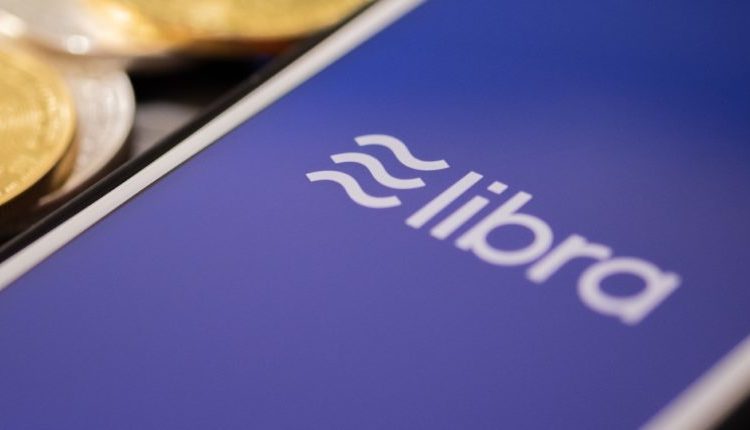Visa and Mastercard might reconsider backing Facebook’s Libra

It was only a year ago that the cryptocurrencies swept over the world and piqued the interest of even the most tech-indifferent people. It seemed like everyone was getting involved with the technology in some type of way and although the absence of institutional investors is thought to have brought down the market, many large corporations started working on different blockchain projects. Facebook was one of such companies. It proposed a permissioned blockchain digital currency called Libra and although the project still has to see the light of the day, the interest in it has been avid among cryptocurrency enthusiasts and other companies.
Libra is supposed to be managed by the Libra Association, which itself is an organization founded by Calibra, a subsidiary of Facebook and dozens of other entities in the technology, payments, venture capital, telecommunications, and nonprofit sectors. The plan is to launch the currency in a year’s time and the experimental code of the project as already been released. The undeveloped network might be the least of Libra’s problems as the technology now seems to be facing the scorn of certain partners like Visa and Mastercard. According to the Wall Street Journal’s reports, these organizations might pull out of the partnership, which would be a huge blow to the project.
According to the reports from unidentified sources, the financial backers of the Libra project will not support it publically to avoid regulatory scrutiny. Cryptocurrencies are still operating in the grey area when it comes to regulations and many countries still haven’t worked out the appropriate regulatory framework for the digital currencies. The bigger organizations might be trying to avoid this uncertainty by backtracking on their involvement with Libra. Visa and Mastercard aren’t the only backers of the project to allegedly make this decision. Bloomberg also reports that PayPal and Stripe, two giants in the payments, might also be undecided to give their official support to the project.

The regulatory uncertainty could also become the reason for Facebook to delay the release of the currency. It was initially planned to launch in Jun 2020, however, it shouldn’t come as a surprise if the company decides to pull back the launch for a few months or even years. We might hear some news after the meeting of policy executives from Libra Association as well as the project’s backers with officials in Washington D.C.
David Marcus from Facebook responds to the allegations
“I can tell you that we’re very calmly, and confidently working through the legitimate concerns that Libra has raised by bringing conversations about the value of digital currencies to the forefront”, – commented David Marcus from Facebook, who is responsible for overseeing the implementation of the Libra project. He posted a series of tweets responding to the Wall Street Journal article. However, he didn’t deny the reports that Visa and Mastercard might be pulling out of the project.
“Felt like addressing this. 1) official 1st wave of Libra Association members will be formalized in the weeks to come;” – read one of his tweets. “2) change of this magnitude is hard and requires courage + it will be a long journey. For Libra to succeed it needs committed members, and while I have no knowledge of specific organizations plans to not step up, commitment to the mission is more important than anything else; 3) The part of this article suggesting we weren’t on top of, or didn’t share detailed information about how to secure Libra and protect the network against illegal activity is categorically untrue; (worth calling BS)” – he continued.
What does Libra mean for blockchain technology?
The success of Libra could reignite the interest and trust in the blockchain technology. People were quick to jump on the bandwagon when the prices of these assets were increasing continuously at an unprecedented pace. The idea of quick riches was so appealing that people who would usually disregard such innovations became involved with the technology. However, the interest in the technology was of a speculative nature which was proven by the sudden decline in prices that occurred at the start of last year. This, in turn, cause people to lose trust in the assets and now the price of most cryptocurrencies is fluctuating as the daytraders try to take advantage of these small movements in price. The adoption of the technology, on the other hand, is still stagnating as few merchants accept payments in cryptocurrencies and many projects involving the technology were abandoned as well.

Blockchain enthusiasts and people who are familiar with the technology know of its true potential and transformative power. However, the speculation around the technology is getting in the way of its true adoption. The disinterest and reluctance of large companies to join the market and start using the blockchain technology also aren’t helping. Facebook, one of the world’s largest corporations could potentially be the push that the market needs to look at the assets in a different way and start using it for the purpose the developers intended.
The idea behind Libra is that the digital assets will be backed by a basket of currencies as well as US Treasury securities which are supposed to curb the volatility in the price and attract a different class of investors from the daytraders that are mainly using the existing cryptos now. According to Facebook, each partner of the project will inject $10 million into Libra so that all issued coins are actually backed by real assets from the first moments of the launch of the network.
New Libra coins will be minted based on the demand and once a holder decides to convert it into a conventional currency, the unit will be retired. This is different from the way most popular cryptocurrencies work right now. Another difference from decentralized permissionless networks is that the transactions will be performed at the servers of each partner and the blockchain technology will be used to reconcile the different accounts at each partner. This way, the platform isn’t truly decentralized and more resembles cryptos like Ripple than Bitcoin or Ethereum.


























Comments (0 comment(s))